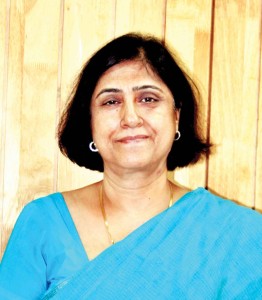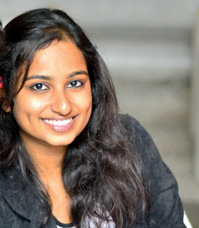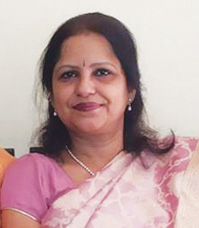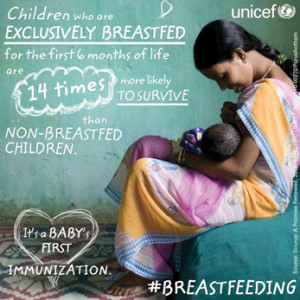Elixir of Life
Despite various government initiatives, there is a need to raise greater awareness and increase support to breastfeeding in order to ensure survival, health and wellbeing of children
By DR SUNEELA GARG/DR RUPSA BANERJEE/DR BRATATI BANERJEE
Breastfeeding is essential for optimal growth and development of infants and children. Early initiation of breastfeeding within one hour of birth and thereafter exclusive breastfeeding for the first six months of life is of prime importance to the wellbeing of the child.
It has been seen that 13% of all deaths of children under five years of age could be prevented by breastfeeding. In India, it could reduce 156,000 child deaths each year, about one third of respiratory infections and half of all diarrhoeal episodes in children.
The health and nutrition benefits of breastfeeding are many, both for the child as well as the mother. Recently breastfeeding has also been suggested as a tool for poverty alleviation.
The Indian Scenario
The data from the fourth National Family Health Survey (NFHS-4) of 17 States showed the following with respect to the key indicators of breast feeding, revealing the need for focussing on promotion of optimal breastfeeding practices.
• Initiation of breastfeeding is 50.5%, though the rate of institutional deliveries is 84.3%
• Exclusive breastfeeding is 57.0%
• Complementary feeding is 49.6%
In spite of its innumerable benefits, very few mothers initiate early breastfeeding. The reason behind this is the fact that women face many barriers to breastfeeding. Inaccurate information regarding breastfeeding practices, lack of motivation and support from family members, absence of skilled breastfeeding counselling, availability and marketing of breast milk substitutes and inability to breastfeed due to inadequate maternity protection at workplace are some of the difficulties women face, as a result of which they cannot practise early initiation of breastfeeding within one hour of birth, exclusive breastfeeding up to six months of age and continued breastfeeding for two years or longer, as recommended by the World Health Organization.
Breastfeeding Week
Breastfeeding Week is observed globally in the first week of August every year. Each year, a theme is selected highlighting an issue of public health importance related to breastfeeding. This year’s World Breastfeeding Week focuses on the 17 Sustainable Development Goals (SDG) and how to achieve them through the protection, promotion and support of breastfeeding.
Breastfeeding in the context of Sustainable Development Goals
Breastfeeding is a readily available, natural and cost effective approach to feeding children and thus has relevance in the first goal on “no poverty”. It also has relevance to the second goal on “zero hunger” as exclusive breastfeeding for first six months of life and continued breastfeeding for two years and beyond, provides adequate nutrition to prevent hunger. Breastfeeding has shown to improve survival, health and wellbeing of infants and children. It improves the child’s immunity, prevents malnutrition and in turn reduces infant and child mortality. It has also shown to prevent respiratory and diarrhoeal diseases in children. In addition to child survival, the health benefits of breastfeeding extend to the mother as well, in the form of protection against diseases like breast and ovarian cancers, osteoporosis and anaemia among others.
Therefore, breastfeeding is relevant to the third SDG on “good health and wellbeing”. Breastmilk is rich in essential fatty acids which significantly improves mental and cognitive development of the child, thus contributing to the fourth goal on “quality education”. Due emphasis has been given to support of breastfeeding in working women to ensure adequate maternity protection to enable continued breastfeeding along with work, which has been incorporated into various national policies and legislations, making the eighth goal on “decent work and economic growth” relevant in this context.
Breastfeeding should be practised by both the rich and the poor alike and therefore supports the tenth goal on “reduced inequalities”. Breastfeeding is, therefore, a necessary tool for achieving sustainable development by 2030.
The MAA Initiative
This year’s World Breastfeeding Week was made significant at the national level with the launch of a new approach to breastfeeding. On 5th August 2016, the Union Minister of Health and Family Welfare launched the “MAA (Mother’s Absolute Affection)” initiative for the promotion of breastfeeding. The Health Minister emphasized the need for creating awareness on breastfeeding among both the rural and urban population since it is the child’s first protection against death, disease and poverty. The lifecycle approach to Reproductive, Maternal, Neonatal, Child and Adolescent health was also focussed upon, and breastfeeding was considered to be a tool central to improving child survival.
The objective of launching the “MAA-Mother’s Absolute Affection” initiative is to create an enabling environment to ensure that mothers, husbands and families receive adequate information and support to promote breastfeeding practices. It was also highlighted that the difference in breastfeeding rates among rural and urban populations are alike, contrary to the belief of higher rates in rural population owing to traditional feeding practices, which implies that the need for intensified efforts to promote, protect and support optimal breastfeeding is universal.“MAA-Mother’s Absolute Affection” is a nation-wide breastfeeding promotion programme that addresses the needs of all children including those living in difficult circumstances.
“MAA-Mother’s Absolute Affection” initiative aims to create awareness regarding breastfeeding by strengthening counselling services for supporting breastfeeding through health systems. The chief components of the MAA Programme are Community awareness generation, Strengthening inter personal communication through ASHA, skilled support for breastfeeding at delivery points in public health facilities, and monitoring and award/recognition.
For the MAA programme, a total of Rs 30 crore has been allocated while each district will be allotted Rs 4.3 lakh for implementing the various activities under it.
The Way Forward
Mother’s milk is the best foundation for the child. Breastfeeding is a practice that has not yet gained the desired popularity in the country, even though it has been emphasized upon since centuries. Efforts are being made to raise awareness and increase support to breastfeeding among the population. The Centre for Disease Control (CDC) has provided guidelines on strategies to support breastfeeding mothers and increase breastfeeding rates. Maternity care practices such as promoting baby friendly hospitals to enable counselling mothers on the importance of exclusive breastfeeding and help them initiate early breastfeeding in the hospital will go a long way in increasing breastfeeding rates. Access to support from health care professionals and skilled counselling on breastfeeding practices, peer support programmes, support for breastfeeding in the workplace including employee benefits and services, social marketing for promotion of breastfeeding and monitoring and regulation of infant formula are some of the strategies suggested by the CDC. The importance of breastfeeding in increasing child survival is a guiding force in continuing the country’s efforts towards achieving health. It should act as a reminder that breastfeeding is a commitment and not an option.
(The authors are associated with Department of Community Medicine, Maulana Azad Medical College, New Delhi)





